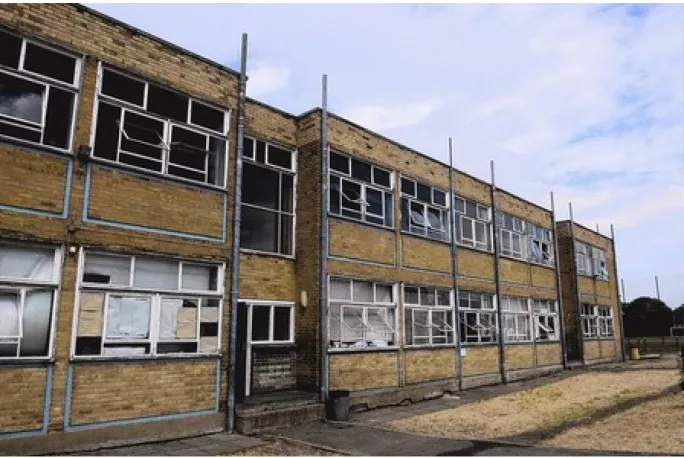School places: Councils forced to cancel repairs to plug £1 billion black hole
Local authorities have been forced to cut back school repairs, cancel building projects and borrow money to plug a £1 billion black hole in funding for school places, it has been claimed.
More than three-quarters of authorities in England say they have not received enough money from the government to create the extra school places needed in their area in a five-year period to 2016/17, according to a poll by the Local Government Association (LGA).
It warned that local councils are facing a challenge in creating places on time and in the right areas at a time when they are also short of cash to do so.
The findings come amid a continuing concern about a squeeze on school places that has been fuelled in part by a rising birth rate and changes in local populations.
Local councils were asked by the LGA if money provided by the Department for Education (DfE) had fully met the cost of providing school places between 2011/12 and 2016/17.
Of those that responded - around 79 councils - a total of 77 per cent said the funding had not been enough.
The total amount of money these councils said they were short by came to £1.06 billion, which means the overall shortfall across England is likely to be higher, the LGA said.
More than a third of the councils that said they did not receive enough funding said that they had borrowed money. Sixty-seven per cent used money from developers, over a fifth took funds from other building programmes and half used cash from other school projects, such as school building maintenance, the LGA said.
It claimed that councils were going to “extraordinary lengths” to ensure every child has a school place, including additional extra classes, using temporary buildings and even putting a playground on a roof.
An extra 90,000 primary places were created last year, the LGA said, adding that its analysis had shown that a further 130,000 will be needed by 2017/18, along with 80,716 new secondary places by 2019/2020.
Councillor David Simmonds, chairman of the LGA’s children and young people’s board, said: “This research lays bare the financial impact on councils of providing school places, which stands at more than £1 billion over a five-year period.
“The scale of this black hole is such that the cost of the creation of new school places cannot be met by council taxpayers. The underfunding of free school meals pales in comparison to this but both show that government’s rhetoric must be matched by its chequebook, rather than leaving local authorities to pick up the tab.
“The lack of school places is no longer confined to primary schools but is spreading to secondary schools, and across the country we estimate more than 200,000 places will be needed.
“Councils face a challenge to create places on time and in the right areas, in a climate where they are also short of money to do so.
Additionally, much of the decision-making about new school places rests in the hands of the government, whose funding for school places came too late. As a consequence, councils are carrying a billion pounds worth of costs that has come from other areas.”
The DfE has previously said that it is making around £5 billion of funding available to councils to create new school places, with around 212,000 new primary places created between May 2010 and May last year.
A DfE spokesperson said: “We are making every effort to stop an unprecedented increase in pupil numbers affecting class sizes, and councils have a legal duty to provide school places for children in their area.
“That is why, through our education plan, we are giving councils £5 billion to spend on new school places over this Parliament - double the amount allocated by the previous government over an equivalent period - already leading to the creation of 260,000 new places in shortage areas.
“We have also confirmed a further £2.35 billion to support councils to create the places needed by September 2017. And there are plenty more school places in the pipeline, with councils planning to create at least 300,000 extra primary places by next year.”
More than 320 free schools open or in the pipeline will provide a further 175,000 places, the DfE added.
Keep reading for just £1 per month
You've reached your limit of free articles this month. Subscribe for £1 per month for three months and get:
- Unlimited access to all Tes magazine content
- Exclusive subscriber-only stories
- Award-winning email newsletters




